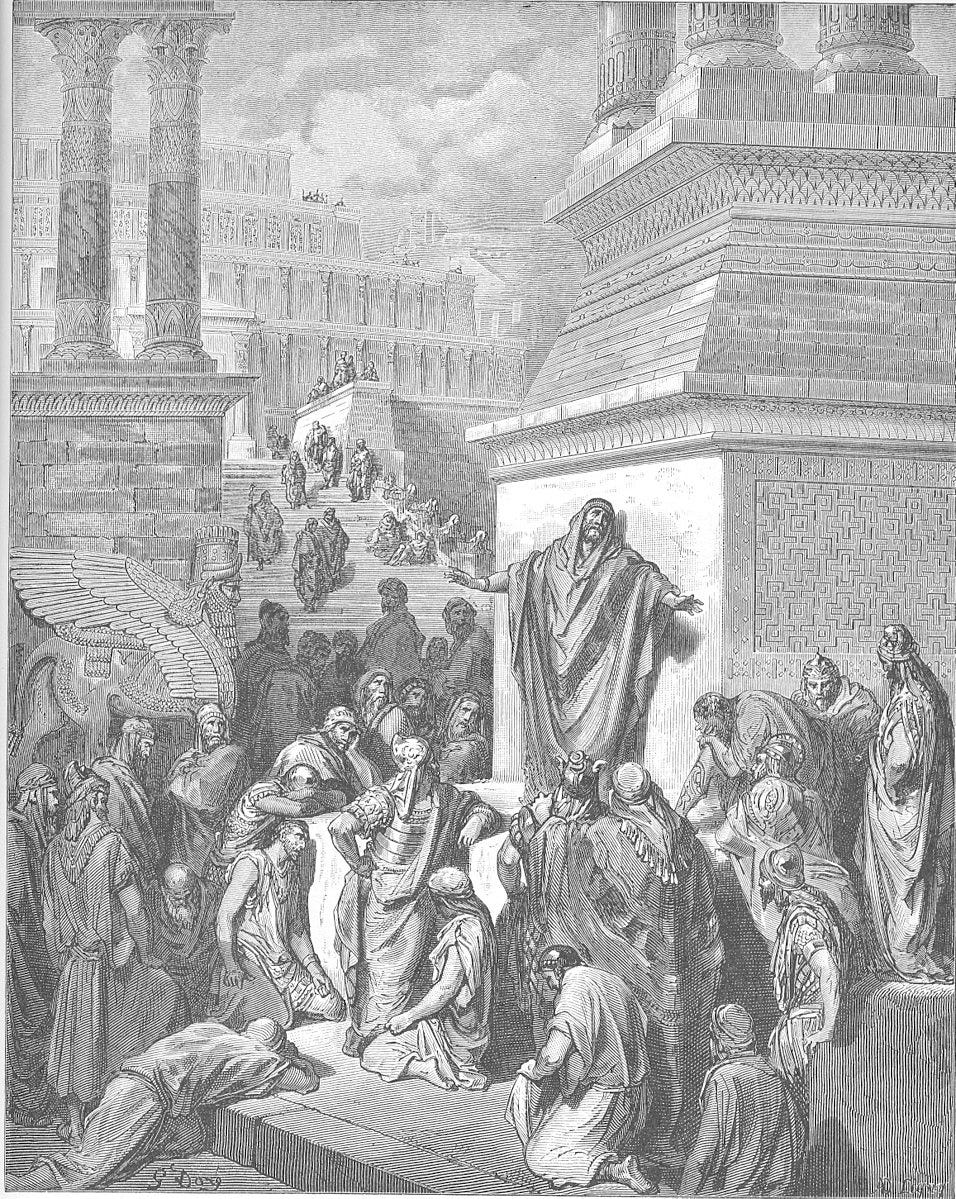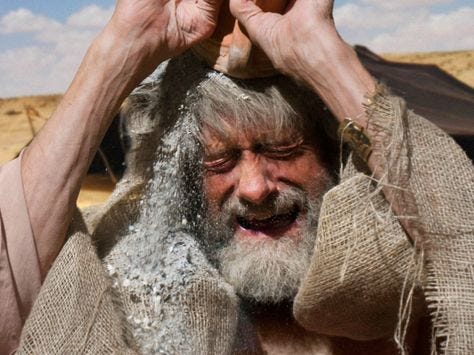Jonah 3 Part 3 - Nineveh Responds to Jonah
Jonah 3:5-9 - No excuses if you believe in God, need to repent and want to change direction
“Then the people of Nineveh believed in God; and they called a fast and put on sackcloth from the greatest to the least of them. When the word reached the king of Nineveh, he arose from his throne, laid aside his robe from him, covered himself with sackcloth and sat on the ashes. He issued a proclamation and it said, “In Nineveh by the decree of the king and his nobles: Do not let man, beast, herd, or flock taste a thing. Do not let them eat or drink water. But both man and beast must be covered with sackcloth; and let men call on God earnestly that each may turn from his wicked way and from the violence which is in his hands. Who knows, God may turn and relent and withdraw His burning anger so that we will not perish.””
Jonah 3:5-9 NASB1995
So Jonah walks the first day into the city of Nineveh, preaching and crying out that in 40 days the city will be overthrown. The response from the Ninevites, from the king on down to the animals in the fields, is truly astonishing. They believe in God and call for a fast and to put on sackcloth (including for the animals). The king asks for them to call on God to earnestly hear them and that would turn from their wicked ways from the violence that is in each of their hands.
Jonah, like another famous prophet crying in the wilderness in a few centuries, is obviously filled with the Holy Spirit and the people see this immediately and repent. They believe in God. The actions of the people and the king represent their true repentance. In the Old Testament, sackcloth and ashes were used to symbolically represent mourning or repentance, as described by Gotquestions.org (links go to the same website):
Sackcloth and ashes were used in Old Testament times as a symbol of debasement, mourning, and/or repentance. Someone wanting to show his repentant heart would often wear sackcloth, sit in ashes, and put ashes on top of his head. Sackcloth was a coarse material usually made of black goat’s hair, making it quite uncomfortable to wear. The ashes signified desolation and ruin.
Sackcloth and ashes were also used as a public sign of repentance and humility before God. When Jonah declared to the people of Nineveh that God was going to destroy them for their wickedness, everyone from the king on down responded with repentance, fasting, and sackcloth and ashes (Jonah 3:5–7). They even put sackcloth on their animals (verse 8). Their reasoning was, “Who knows? God may yet relent and with compassion turn from his fierce anger so that we will not perish” (verse 9). This is interesting because the Bible never says that Jonah’s message included any mention of God’s mercy; but mercy is what they received. It’s clear that the Ninevites’ donning of sackcloth and ashes was not a meaningless show. God saw genuine change—a humble change of heart represented by the sackcloth and ashes—and it caused Him to “relent” and not bring about His plan to destroy them (Jonah 3:10).
Most believers certainly don’t don sackcloth in this day and age, do we? Perhaps the symbolism of ashes can be seen in some denominations doing Ash Wednesday rituals before Lent (doing rituals don’t always mean true repentance is felt). And the rituals of Lent itself may do not lend themselves to true repentance, either (“Let’s see - Jesus died for my sins, so I will give up chocolate for 40 days”). But when we truly repent, we should come to God with a serious and heartfelt mourning for our sinful ways, like pouring ashes into our very soul and being quite uncomfortable in our sin and our own skin, like wearing virtual itchy sackcloth. Here is what Enduring Word commentary has to say about this repentance:
But let man and beast…cry mightily to God: Repentance means crying mightily to God. It means coming to God with passion and seriousness about your sin and your need for His mercy and forgiveness.
Many modern expressions of repentance, making excuses and justifying reasons for the sin, are really not repentance at all. Often they are only attempts to justify and excuse sin. Nevertheless, you sinned or you didn’t; if you did, there is no excuse, and if you didn’t, there is no need to repent. Repentance and excuses simply don’t belong together.
Yes, let every one turn from his evil way and from the violence that is in his hands: Repentance means turning from your evil way and from the violence that is in your hands. Repentance means to change your mind and turn from your previous sinful actions.
In the Christian life, repentance does not describe what you must do to turn to God; it describes the very process of turning to God. When we truly turn to Him, we turn away from the things that displease Him.
Pay attention in particular to the concerns for how we do modern repentance, by making excuses and justifying the reasons for sin (“I’m only human”, “The devil made me do it”, “It’s easy for me to succumb to temptations”, “It was just this one time”). David Guzik nails it by saying that true repentance and excuses for sin do not belong together.
Jonah was obviously a very effective preacher about repentance because of his own travails before he came to Nineveh. So how does God respond to the people of Nineveh? My next devotional examines Jonah 3:10 - God relents.
Heaven on Wheels Daily Prayer -
Dear Lord - Please help me to truly repent for my sins and to change direction towards You and to not make excuses. I mourn for my sinful ways and my stubbornness that drives me to keep sinning and not repent. In Jesus’ Name - Amen.
Scripture quotations taken from the (NASB®) New American Standard Bible®, Copyright © 1960, 1971, 1977, 1995 by The Lockman Foundation. Used by permission. All rights reserved. lockman.org
Commentary from Enduring Word by David Guzik is used with written permission.





Beautiful. Thanks Barb